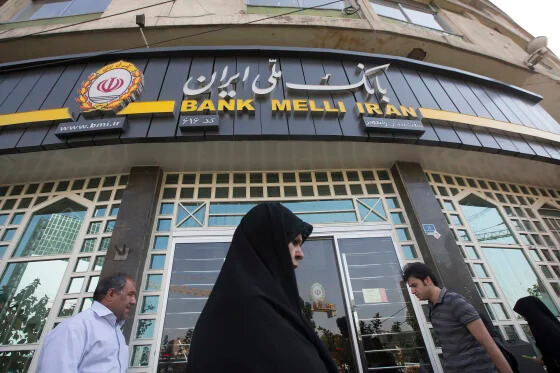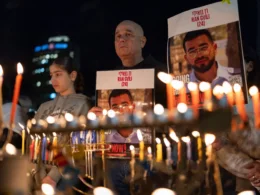As protests continue in Iran despite crackdowns by the Islamic Republic's security forces, new media reports Wednesday revealed that officials in Tehran are planning to freeze the bank accounts of women who refuse to wear a hijab.
A member of the Iranian parliament told local state media that the government plans to impose new punishments on women who do not wear a hijab in public, with individuals who refuse to comply after two warnings potentially having their bank accounts frozen.
The news comes as protesters continue flooding the streets of Iran after the death of 22-year-old Mahsa Amini in mid September at the hands of the Islamic morality police for her hijab wear.
Hossein Jalali, a member of the Cultural Commission of the Islamic Consultative Assembly, told media outlets that "unveiled persons" would be sent an SMS urging them to respect the law and wear a hijab before entering a "warning phase" and finally having their bank account frozen.
The regime official did not describe what the "warning stage" entailed.
Other key figures in the Islamic government have said that cameras could be used along with artificial intelligence to identify offenders.
“This is not just a development to the recent nationwide revolution against the hijab, this high-tech enforcement of hijab has been planned for some time as the regime wanted to phase out street-level enforcement of hijab laws and move to a systematized mechanism to avoid confrontations between security officials and women on the street but smother them in bureaucratic enforcement,” said Gabriel Noronha, a Former State Department Official on Iranian Affairs.
“I think it is likely that the Islamic Republic will escalate their system to use surveillance cameras to identify infractions of their hijab laws, and for repeat offenders they will eventually remove their social media accounts, confiscate their cars or apartments, and impose severe financial penalties until women obey,” explained Noronha.
For nearly three months Iranians have been protesting throughout the country calling for regime change and the downfall of Supreme Leader Ayatollah Ali Khamenei and President Ebrahim Rasi.
Many women in Iran are setting fire to their hijabs or refusing to wear them. While the impetus to the Iranian freedom movement was protest over compulsory hijab and women’s rights, the protests now demand regime change with both men and women participating in the demonstrations.
According to Noronha, “the United States and the international community should work to ensure technology and security cameras are not getting exported to the Islamic Republic. In fact, a new resolution passed by the Senate and House Foreign Relations Committees today directed the State Department to develop a strategy to ensure this would not happen.”
The threat to freeze the bank accounts of protestors mimics the Canadian government’s steps to freeze the bank accounts of those partaking in the "Freedom Convoy" protests. In response, convoy protesters turned to crypto to fund their movement after the fundraising platform GoFundMe removed the campaign from its website.
In early August, the Islamic Republic used crypto in international trade deals, developing its own Central Digital Currency (CBDC) called the crypto rial. According to experts familiar with this issue, the threat from Iranian officials to freeze bank accounts to enforce compliance again highlights the risks of CBDCs and the transition to cashless economies.
As protests continue to flourish in Iran, the ayatollahs have relied heavily on the Islamic Revolutionary Guards Corps (IRGC), Basij paramilitary forces and terrorist proxies to suppress protesters. In the past few weeks, the regime has enacted several sentences against protesters, finding ways to push for consequences against protesters while doing everything to maintain Islamic governance.
Several days ago, an Iranian bank manager was fired for attending to an unveiled woman without a hijab. In response to the regime's crackdowns, more Iranians are engaging in their daily activities in Iran without hijabs despite facing threats and harassment from regime supporters.









